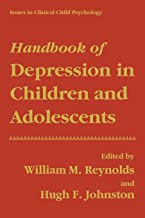Major Depressive Episode
Depression is a mood disorder that causes a persistent feeling of sadness and loss of interest. Also called major depressive disorder or clinical depression, it affects how you feel, think and behave and can lead to a variety of emotional and physical problems. You may have trouble doing normal day-to-day activities, and sometimes you may feel as if life isn’t worth living.
More than just a bout of the blues, depression isn’t a weakness and you can’t simply “snap out” of it. Depression may require long-term treatment. But don’t get discouraged. Most people with depression feel better with medication, psychotherapy or both.
Cluster Number:
Wiki Number: PW116
Diagnosis: Major Depressive Episode
US Patients: If untreated can last for several months to two years. Symptoms may improve within 6-8 weeks with treatment.
World Patients:
Sex Ratio: M+;F
Age Onset: Ages 20-45
Brain Area:
Symptoms: Symptoms for two weeks of major depressive disorder: loss of interest or pleasure, anxiety, insomnia
Progression: saddened mood, poor sleep, loss of energy, concentration or appetite, thoughts of death or suicide
Causes: Neurotransmitters out of balance, feeling worthless and dispairing; heredity or familial causes
Medications: antidepressants which take 4-6 weeks until maximum effect;
Therapies: psychotherapy
Youtube Video: Major Depressive Episode Self-Care Strategies
Amazon or Library Book:
Handbook of Depression in Children and Adolescents
Click the book to link or buy from Amazon. (Very Expensive!)
Your content goes here. Edit or remove this text inline or in the module Content settings. You can also style every aspect of this content in the module Design settings and even apply custom CSS to this text in the module Advanced settings.

